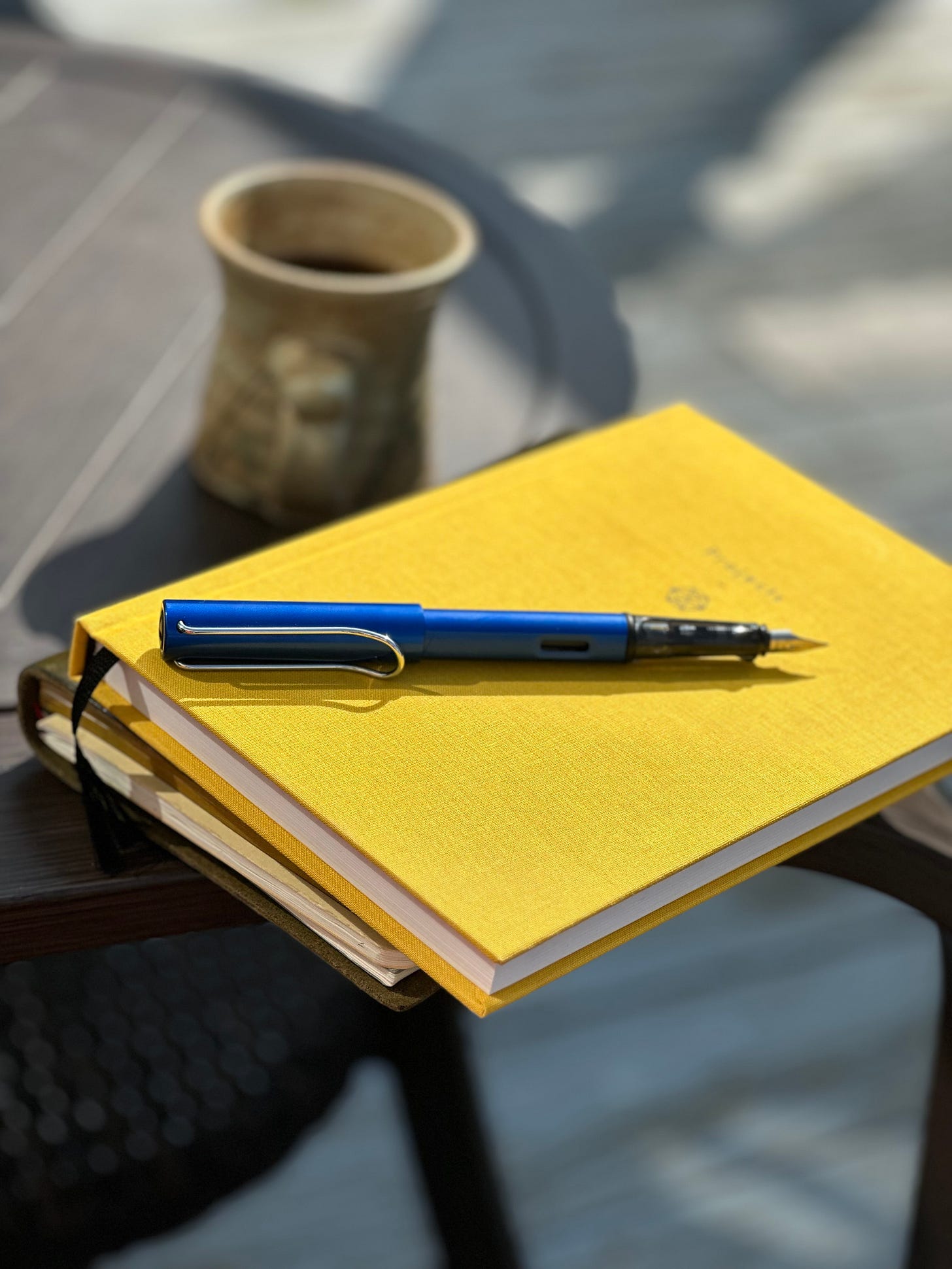The Power of Putting Thoughts on Paper

I’ve spoken before, years ago on the podcast, about how journaling is a foundational part of my process. It’s not just a method for recording events or thoughts; it’s a mechanism for ideation, a way to enter dialogue with my own mind. Over time, I’ve come to see it not as a discipline to maintain, but as an environment to inhabit. Pen on paper, ink on the page, is a form of thinking in motion. With so much of my day typically defined by keyboards and screens, the analogue nature of journaling matters. The slowness of writing by hand slows the mind just enough to allow depth to form. In that space, ideas not only emerge; they linger, expand, and evolve.
For me, journaling is not a singular activity but a suite of practices. I keep a personal reflection journal that allows me to process the emotional and psychological terrain of leadership and life. I have a daily review journal where I capture quick assessments of what went right, what didn’t, and what might come next. And then there’s the project and venture journal—where sparks become concepts, and sometimes, concepts become businesses. This division isn’t about compartmentalization; it’s about clarity. Each journal invites a different mode of thought and expression.
Why paper? Because paper doesn’t notify you. It doesn’t scroll. It doesn’t prompt or distract. It simply waits. That waiting creates room to hear yourself, unobstructed. It’s not a Luddite stance, but rather an intentional decision to preserve the full fidelity of my attention. Writing on paper also changes how ideas arrive. They don’t just appear; they assemble. The tactile act of moving a pen across a page links the brain to the thought differently than tapping a screen ever could.
Beyond ideation and self-awareness, journaling builds something increasingly rare: continuity of thought. Most digital tools excel at capture, but very few facilitate return. A journal, revisited, becomes a dialogue across time. The past version of yourself leaves clues, encouragement, challenges. It becomes not just a record, but a relationship. In this way, journaling also becomes a subtle leadership tool. It helps leaders develop narrative intelligence, the ability to trace the arc of your decisions, the why beneath the what, and the lessons that came with both success and misstep.
I journal to explore, to steady myself, to remember what mattered and to notice what’s emerging. It’s private work that often shapes public action. And while the practice looks simple, the compound interest of it is profound. Ideas become ventures. Questions become strategies. Unclear thoughts become frameworks. In the end, it’s not about writing more. It’s about thinking better. And for me, the best thinking still begins with a pen in hand.
